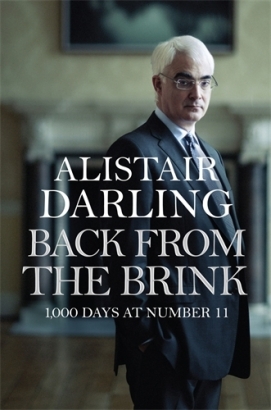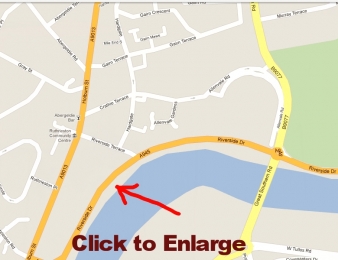Old Susannah looks back at the week that was and wonders who’s up to what and why. By Suzanne Kelly.
Tartan Day.
A few impressive pipe bands, some knights in armour, and the Lord and Lady Provost paying tribute to the legacy of William Wallace. Wallace famously fought for independence for his people against the rich and powerful tyrants of the day, who thought they were above the law.
You might say Wallace took ‘direct action’ to extremes. How pleased he would have been to think our Provost and Council uphold the principles for which he was hung, drawn and quartered.
His statue of course overlooks the remains of the historic Denburn Valley, known to you and me as Union Terrace Gardens: also known to Wood and Milne as a cashcow. How exactly the Wallace monument will look adjacent to any of the mysterious, unexplained, undisclosed £140 million pound proposals will be anyone’s guess.
No doubt we will wind up with something that sensitively ‘connects’ the Victorian park to the impressive granite architecture. In short expect glass, concrete, parking spaces and a monorail platform. I suppose we could always take Wallace down and sell him for scrap metal to help with the UTG fundraising. He’d have wanted it that way I am certain.
A few interesting titbits have been coming in from here and there. Ms Valerie Watts showed up to speak to a Community Council Forum earlier this week, but she was unamused to be asked about the Tullos Hill roe deer cull.
Ms Watts also owes me a reply to a formal complaint on the whole Tullos issue; I’ve chased it up (again) today.
In fact the City is launching a PR offensive, and has offered to have officers present the tree proposal to community councils. You might want to contact your council for details – the question and answer sessions (if any) alone should be worth showing up for. We are told the community councils ‘only know what’s been in the media’, and don’t know the whole facts.
Media’s fault of course. Nothing to do with the council not giving the truth, the whole truth and nothing but the truth from the start of this great plan. Of course if people wanted to write to Ms Watts to either support or reject the cull (or ask how the £43,800 ‘repayment’ was accidentally forgotten when I asked about it), all they have to do is drop an email to her at chiefexecutive@aberdeencity.gov.uk.
Feel free to ask any questions you want; but as a health and safety precaution, do not hold your breath until the answer arrives. At this rate we won’t get on with any definitions, so without any further ado, I will get stuck in.
Association of Community Councils
(noun) a collective body promoting the importance of community councils. A not-for-profit body with the following aims (well at least until it is culled next year):
- “To encourage exchanges of information between Community Councils.
- “To promote examples of best practice in the work of Community Councils
- “To offer impartial and unbiased advice, training and information to Community Councils
- “To facilitate communication between national bodies and Community Councils
- “To preserve the independence of each Community Council
- “To ascertain, collect, and express nationally, the views of Community Councils.
From: http://www.ascc.org.uk/about
Unfortunately, it’s very, very expensive to run this Association. It costs a massive £70,000 per year to run*, so obviously this forum for sharing ideas and experiences to strengthen community councils must be culled.
Aberdeen has its own unique way of dealing with community councils – it ignores them. When it comes to consultations about deer, travellers, Union Terrace Gardens, closing schools or cutting services, our City Councillors generously take decisions without unduly burdening the elected community councillors.
Nigg Community Council was told, not asked, about the takeover of its park by Cove Bay Rangers football club (fan club president: Ms Kate Dean). They were told, not asked over the deer cull and the Loirston Loch stadium. Just this week Nigg CC for some reason objected to a housing officer’s plans to throw Calder Park open to travellers for a few months.
What’s wrong with not being asked about this great plan in advance, I wonder?
This is all part of the City’s ‘consultation’ and ‘transparency’ drive. Once the Association of Community Councils is gone, the Community Councils will be on their own. In fact I’m surprised we haven’t had city councillors trying to kill off the community councils yet. Some of these councils get nearly £3,000 a year or so to help people in their communities.
Perhaps it would be better to leave important matters to our tried and tested, honest, reliable, transparent, vibrant central government officials and councillors (well, the ones who keep out of jail and don’t get arrested for kerb crawling anyway. Great minds like HoMalone, The Fletch and The Dean and so on). I know I can barely get through a day on my own without their guidance.
The Association stood up for the community councils, shared best practice, shared experiences, and helped people (me directly for one) – no wonder it had to go.
*Note: £70K doesn’t’ get you much these days. Aberdeen’s ‘Change Manager’ earns £80,000 per year. Scottish Enterprise costs some £750 million per year. And ACSEF’s annual running costs? No one knows for certain.
Streamline
(verb) to abbreviate, shorten, abridge an object or procedure.
Central Government has recently announced it wants to ‘stop’ people creating future impediments to great projects like the AWPR. The Loirston Loch stadium, being plunked in the heart of greenbelt land, never even got called in.
Time for more projects like the stadium to be ‘streamlined.’
You will have seen the dreadful news this week. There was nothing sensationalist or alarmist in the Evening Express headline which told us in effect ‘Not building the AWPR costs £1 million per month’! Absolutely shocking! To think that people who don’t want this road built actually are standing up and using their legal rights to challenge it! They even have the nerve to challenge the public/private funding mechanism the government wants to use to pay for the dream highway.
Obviously I believe it costs at least £1 million a month not to build the road – but you might want to have a look at what the Road Sense people think actually building the road will cost:- http://www.road-sense.org/AWPR-MortgagingYourFuture.html .
I wouldn’t worry too much about their figures. The road isn’t going to cost you a great deal of money. However your children and their children’s cost for the road is another story, but like Scarlett O’Hara – with PPI financing, you can ‘worry about it tomorrow.’ Financially, it is as sensible as the funding plans for the ‘transformation’ of Union Terrace Gardens.
‘Streamlining’ planning applications can only be a good thing.
If anyone out there can figure out how much the AWPR has already cost in consultants and consultations, I’d really like to hear from you. Let’s be fair – there was a consultation. A great big costly travelling consultation, with bells and whistles.
Of course the routes suggested in the very expensive consultation have nothing to do whatsoever with the road plans as they stand now, but let’s not split hairs. Money is very tight right now. We’ve got to cut corners (if we’re going to have the dosh to keep a couple of wars and our banks going).. The suggestion of ‘streamlining’ the justice system to get rid of pesky jury trials was a great idea – we may still get that one.
‘Streamlining’ planning applications can only be a good thing.
It is very reassuring to know that Alex Salmond is putting his mind to this worthy end. We really should have made it easier for that nice Mr Trump from America to build the world’s greatest environmental disaster – sorry – golf course at Menie… Look how much good it’s doing for everyone! Jobs creations! Tourists! Holiday Homes! Stabilised Sand dunes (my personal favourite). So if we don’t immediately agree to start building the £191 million pound road (old estimate), then we are losing £1 million per month – if not per day!
This can’t go on. I wouldn’t dare to question this statistic, as it was in print and must be accurate. (By the way, assuming the costs haven’t risen from the £191 million, the new AWPR can be yours in only 16 years at £1 million per month – or twice that with PPI financing).
Let’s just start saying ‘yes’ to everything. We have a government that wants to build as much stuff as it can, and it doesn’t want the likes of us to have to worry about the details. I think they’re just trying to be helpful. To someone.
Direct Action
(mod English noun) form of protest where the protestors stage some kind of highly visible challenge to opponents, to call attention (especially media attention) to an issue or problem .
This form of protest is increasingly popular with environmental and economic activists. And it freaks the government out completely – which is totally wrong of course.
In a long-forgotten age, if your elected officials acted improperly or against the common good, you could write a letter and expect some form of answer. If you didn’t get the answer you wanted, you could stage a protest march, get petitions signed, and so on.
It’s not as if our Government is scared of protestors.
If you still had no success with your cause in the good old days, you could take to the forests and rob the rich and give to the poor, or board a ship filled with tea from England and throw its contents into Boston Harbour. Or have a revolution.
But no one ever remembers such events these days, and writing letters and starting petitions is much, well –safer. Still, it’s a bit easier to ignore a petition than the Boston Tea Party. Robin Hood is remembered as a hero, and King John the villain. Who I wonder are our future heroes and villains? Whose statues will be revered at the future Union Terrace car park and shopping mall?
It’s not as if our Government is scared of protestors. If they were, they would have (for instance) put an undercover cop like Mr Mark Kennedy in place to spy on environmental protestors for seven years. It does look like the poor policeman went ‘native’ in the end, and the courts did not think much of the police tactics used.
Such unwarranted police paranoia would never override principles of a democratic, free society. But as the Met are not prepared to discuss this matter (even though it’s been all over the newspapers), we have to give them the benefit of the doubt.
Old Susannah will introduce ‘Just Do It’ next week at the Belmont; there will be discussion afterwards as well.
‘Just Do It’ follows a group of environmental protestors as they meet their assorted targets and enemies head on. If you’re free on Friday 12 Aug at 6.30, please do come along. I have had a preview of the film, and can promise it will raise a few interesting issues. (Rumours that the sale of deer antler headbands are about to go through the roof in Aberdeen are unconfirmed).



